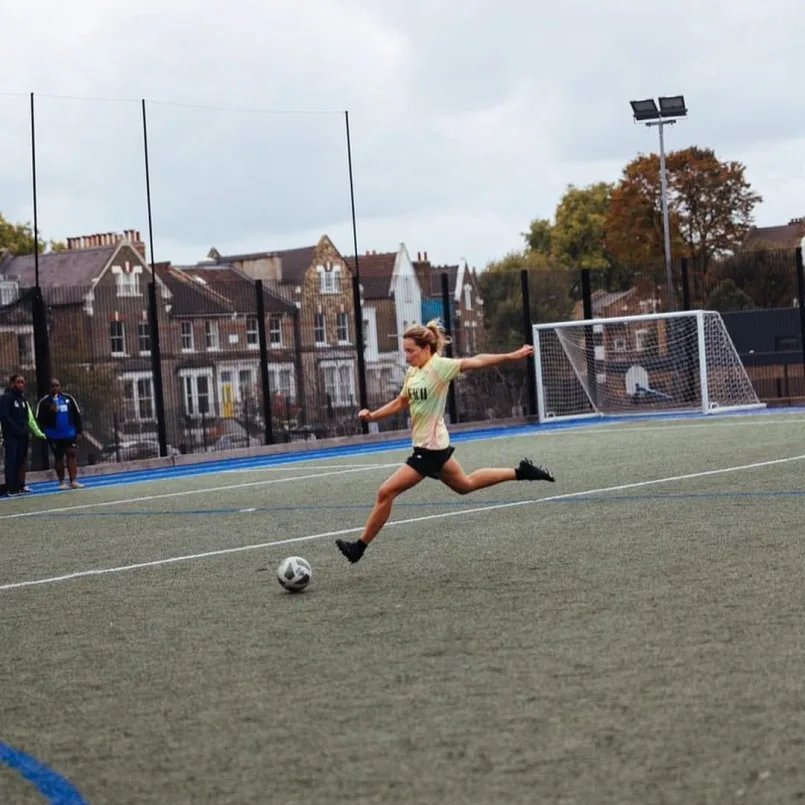When Gemma Smith, a Senior Vice President in AlixPartners’ Turnaround & Restructuring team, played football as a child in Glasgow, she was the only girl playing at her school. “It was very uncommon for girls to play, but I loved it” she recalls.
Women’s football was banned in Scotland and the rest of the United Kingdom from 1921 to 1971, which hindered the adoption of the sport for decades after.
By secondary school, Gemma’s passion for the sport faded because schools didn’t offer football for girls and local football teams for girls were rare. It wasn’t until her adulthood, and a move to London, that Gemma reignited her love for football, where she now plays up to three times a week.

In recent years, women’s football has grown in popularity in the United Kingdom, driven by England’s national team, the Lionesses, winning the 2022 Euros in front of a record-setting audience at London’s Wembley Stadium.
Playing again, Gemma noticed the many inequalities that women in the sport still face, including that more than 80% of professional women players experience regular pain and discomfort because of their football boots.
“My own persistent foot and toe related issues led me to discover that most football boots are designed for men’s feet."

Gemma learned there are five key differences between men's and women’s feet and general anatomy, and that those differences are not factored into most women’s football boots.
One example Gemma cited is research that suggests the studs in boots designed for men are suboptimal for the lesser force of women’s bodies, increasing the likelihood of the boot getting stuck in the surface being played on.
Frustrated by the lack of options available for women, Gemma founded Rea Football Co., a brand dedicated to addressing the inequalities female footballers face.
The brand’s mission is to design football-related kit specifically for female players. This starts with a football boot designed by women, for women. Currently, they are in the product development stage and in talks with factories to begin prototyping and testing.

At first, Gemma made time for Rea late at night and on the weekends, but soon realized that this was a big endeavor that required more of her time. She spoke with her AlixPartners team lead Clare Kennedy, Partner and Managing Director, about an alternative work arrangement to work part-time, and was met with bold encouragement.
“I’m very grateful to work for such a forward-thinking and people-focused firm that allows me to continue my career serving our clients while also creating a brand with a social purpose.”
Gemma views her roles as a consultant and a founder complimentary. She regularly applies her restructuring expertise to think strategically in the new-to-her arena of launching a company. Conversely, she notes that “the steep learning curve of building a start-up is giving me practical insights into the challenges our clients face daily as management teams.”
“The women’s game is still growing around the world and because of that there are professional players without football boot sponsors...Who knows, maybe in a few years’ time, some will be wearing Rea.”
